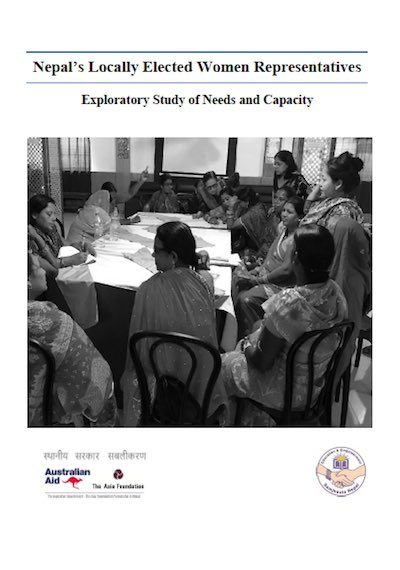The successful completion of local, provincial, and federal elections in 2017 was a historic milestone for Nepal, coming after almost two decades. A record number of women representatives were elected to office in these elections, and this has presented both opportunities and challenges. This increased number of women, especially from marginalized communities, coming into power augurs well for gender equality and social inclusion (GESI), but the road to women’s substantive participation in leadership and decision-making roles will not be an easy one. Against this backdrop, The Asia Foundation, in partnership with Samjhauta Nepal, conducted a mixed-method exploratory study in 20 rural and urban municipalities across all seven provinces to assess the existing needs and capabilities of the locally-elected women representatives along with the social, political, and economic challenges and opportunities that face newly-elected women representatives.
